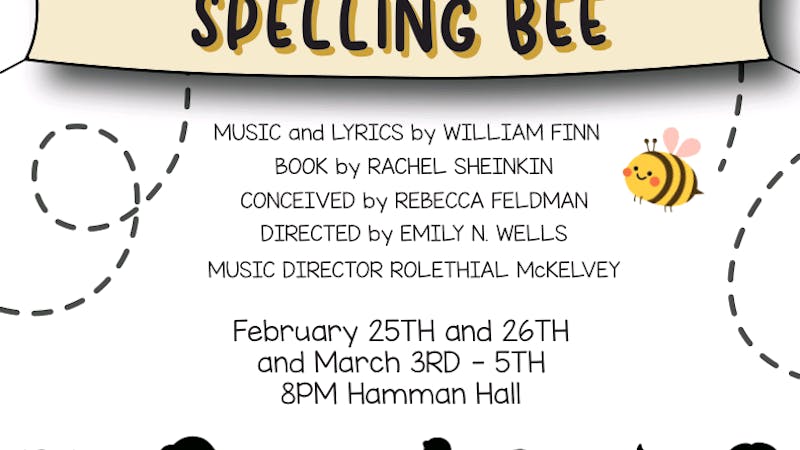Abortion is still an option, despite harmful restrictions
Preventable deaths, rising maternal mortality rates, threats to contraception and state-sponsored deception. This is the reality in Texas, two years after the overturn of Roe v. Wade.
Preventable deaths, rising maternal mortality rates, threats to contraception and state-sponsored deception. This is the reality in Texas, two years after the overturn of Roe v. Wade.
When “Pro-Life After Roe” was published in the Thresher, we were in the midst of finalizing a semester-long report on the state of reproductive rights in Texas. We had spent the day compiling firsthand accounts of the panic, pain and trauma produced by abortion bans. It felt necessary to address the guest opinion and confront the harms of abortion restrictions.

“Praise A Lord Who Chews But Which Does Not Consume; (Or Simply, Hot Between Worlds),” is Yves Tumor’s most agitated album to date. Released on March 17, “Praise A Lord'' offers a flood of dirty chords and characteristically brilliant lyrics. “Lovely sewer, tragedy free / In love with the frenzy,” Tumor writes at the album’s outset. Their elusive image and haunting, glamor-punk style create an air of enigmatic mysticality that leaves their creations up for interpretation. Both devoid of soul and absolutely overflowing with it, “Praise A Lord” is Yves Tumor’s ineffable masterpiece.

A colorful portrait of privilege, egotism and murder emerges in A24’s latest film, “Bodies Bodies Bodies.” Released in theaters Aug. 12, “Bodies” follows the wealthy, assertive Sophie (Amandla Stenberg) as she invites her reserved girlfriend Bee (Maria Bakalova) to meet her friends at a remote mansion. Eerily tranquil shots of attractive 20-somethings floating underwater in the mansion’s pool introduce us to the “Bodies” ensemble: narcissistic David, unassuming Emma, mysterious Jordan, vapid Alice and Alice’s middle-aged, clueless boyfriend Greg. Upon their arrival, Sophie and Bee are met with reluctance and social tensions, which only build as the day progresses. That night, in a blur of drugs and dancing, Sophie suggests a murder mystery game that quickly becomes all too real. While a hurricane rages outside, characters are found bloodily still throughout the house; respective corpses shed light on old grudges, lurid truths and, most importantly, the obnoxious self-absorption of our affluent protagonists.

Baltimore-born synth duo Beach House released their first self-produced album on Feb. 18. Written over the course of three years, “Once Twice Melody'' is a four-part kaleidoscope of timeless yet transient melancholia and one of Beach House’s most ambitious projects to date. Of the album’s 84-minute run time, keyboardist Victoria Legrand said, “We discovered that there was something more that the record wanted than just a 10-song existence.” Though “Once Twice Melody” fails to maintain the steady surety of the duo’s breakout release “Bloom,” the album preserves wealthy, brimming harmonies worthy of a corresponding light show.

Rice’s Visual and Dramatic Arts department and student-run theatre company the Rice Players will stage a musical production of “The 25th Annual Putnam County Spelling Bee.” Described by Christina Keefe, the VADA producer of the production, as an “uplifting, fun, wacky production,” the show features student actors and crew members and the work of both professional and student designers. Performances are Feb. 25, 26 and March 3-5 at 8:00 p.m. in Hamman Hall. Student admission is free, and general admission is $10.

“Hey, I made you a mixtape / Because when I feel you, I feel me / And when I feel me, it feels good,” breathes FKA Twigs in “ride the dragon,” the first track on her latest album, “CAPRISONGS.” Released on Jan. 14, “CAPRISONGS” is a love letter to friendship, music, adventure, collaboration and, most of all, to Twigs herself. A drastic departure from the divine, heartrending emotion of “MAGDALENE,” its follow-up is a blitzy, feature-filled mirage of candied pop. Described by Twigs as “bronzer in the sink, alco pop on the side, a cherry lolly… a club pre-game, meeting a friend at the airport, just togetherness,” the album is studded with plastic rhinestones. Though “CAPRISONGS” sporadically falls prey to underdeveloped interludes and forgettable songs, its otherworldly synth frenzy renders it a respectable recovery mixtape.

Adele’s fourth studio album “30” is a vulnerable amalgamation of jarring rhythms and soulful influences. Released on Nov. 19, “30” generated widespread critical acclaim for its candid, emotional narration of Adele’s divorce from Simon Konecki. Despite her previously established reputation for a rich vocal range and expressive, emotional lyricism, listeners and critics alike have lauded the new record as Adele’s greatest musical risk to date. A poignant account of the turbulence of family, love, fame, and heartbreak, “30” reiterates Adele’s timeless ability to storytell in a way that touches the hearts of fans everywhere.

It’s Sept. 29, 2008. In the town of Reading, Pennsylvania, two men occupy a claustrophobic square of harsh white light — one marked by a black eye and white supremacist face tattoo, the other bearing the pen and notepad of a parole officer. The scene is static, the performances tense. This is Lynn Nottage’s prize-winning play “Sweat,” performed at the Alley Theatre in Houston.